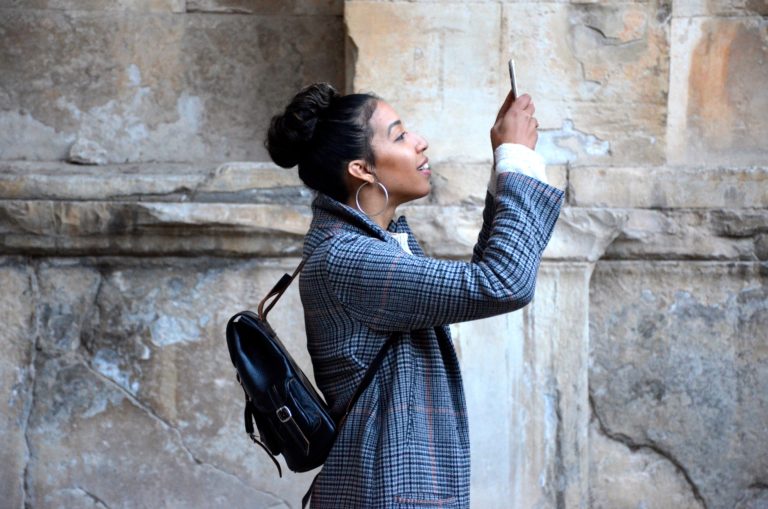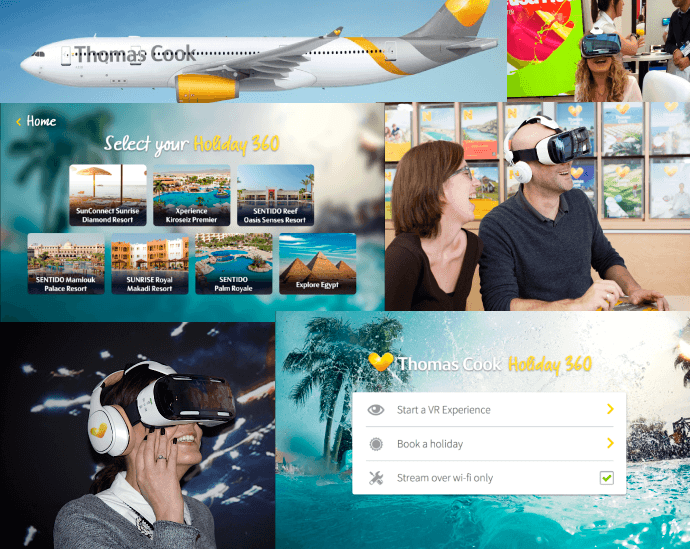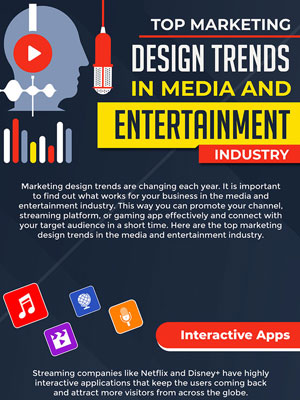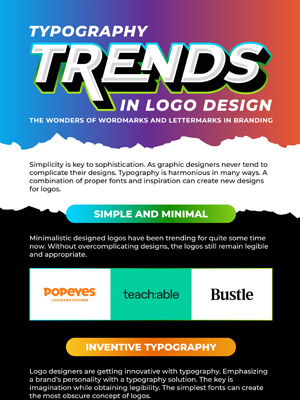Charm your American and European Millennial Audience: Digital Branding Tactics For Travel Agencies
Who doesn’t like traveling?
I know I do.
We’re human beings, and we love to socialize and explore. During the holiday season, such as in summer, both international and domestic travelers buzz across the world in an aim to discover new cultures, meet their loved ones or attend business meetings.
Unlike any other generation, the one travel group that’s the talk of the town is … Millennials! The Pew Research Center defines people from this category as those born between the years 1980 and 2000. You can also refer to them as generation Y, or Gen Y for short.

Image Source: Angela Franklin/Unsplash
Generation Y travel craze started before this recent hype. According to Canada Millennial Domestic Travel Summary Report, 2015 Millennials generated over US $160 billion worth travel receipts and went on $187 million intercontinental trips, which accounts for 20% of the total international traveling quota in a year. FYI, in four years from now, the number of global travel trips made by this group will increase significantly.
The Millennial malady, according to Adventure Travel News, is “FOMO” an acronym for “the Fear of Missing Out”. Unlike baby boomers, they don’t want to keep saving money for retirement while letting go of life in the present. They want to get out, explore and engage.
If you’re a travel agency, Millennials can be a great target market because it is estimated that by 2020 they will outspend baby boomers in traveling expenditures, and will travel more than they do today. Hence being in their good books will score you points.
But before you begin your efforts to impress this cohort, you must dig deep into their travel penchants.
Gen Y Travel Insight
Not all Millennials have the same preferences. A latest collaborated report by Expedia and Future Foundation highlights that not all millennial travelers are the same as they belong to different life stages. For example, 42% of younger Millennials are more inclined towards reducing stress via traveling rather than 37% older millennials who want to spend quality time with their partners.
However, one thing is definite that their lives are empowered by the internet, specifically social media. They’re digital natives, social addicts, tech-savvy (as everyone knows) and they’re fond of traveling. The travelers from this group have their own way of planning and executing travel trips.
Digital researchers
Millennials use a variety of web-enabled devices to find and pick travel options. They do a thorough analysis of destinations, travel agencies, airlines, and costs by observing websites and reading social media reviews.
A research by Yahoo (2014) discovered that around three-quarters of American Millennial travelers searched the internet for travel trips, using their tablets and smartphones. A year later, a poll by Harris Interactive for Switchfly concluded that 66% of smartphone users in the United States aged 18 to 34 conveyed that they use portable devices to book travel services.
Image source: rawpixel/Unplash
Prioritize services
Generation Y is constantly critical of services provided by companies these days. They give greater value to travel companies who focus on ‘personalizing’ buying experiences. As per Family Travel Association, Millennials seek attention and expert advice. You may want to tap on to this.
They are particular about how travel agencies treat them during each stage of their buyer’s journey, which actually starts from the moment when they first see your brand.
Cost savers
Don’t misjudge this attribute of Millennials – they certainly are not misers. Travelers from this group want deals and discount coupons or codes. Not all individuals in this generation are budget-conscious, some love to make luxurious trips. They’re enthralled by packages with a taste of local experiences of the host country. If they’re given the right deal in the money they want, you can easily convert these globetrotters into your customers.
Highly opinionated
Oh, yes! Millennials are very responsive, and they are exceedingly active on social media to share their comments and reviews about everything from bird poop to an ice-cream scoop. Seriously. It’s not simply about being the center of attention, millennials are spontaneous at liking or disliking things and then discussing them on their blogs, or social media accounts.
Elect travel agency services
Millennials are turning to travel agents instead of self-booking websites because of convenience. In the last two years travel agencies, in general, have witnessed an increase in customers looking for trustworthy packages, advice, and experiential traveling.
Also Explore: 12 Rules to Engaging the Millennials
The Digital Era
In How Millennials Killed Travel Marketing As We Know It, it’s explained that Millennials are submerged in portable digital devices with an access to the internet. Generation Y was born with the internet at hand, and “consider instant access to information their birthright.”
If there is anything as or more dear to Millennials then it’s their mobile devices. Around 75% of this group uses a portable gadget to enter the virtual sphere. By the way, the proclivity of Gen Ys to interact on social media via mobile phones “led to a new paradigm in social interaction, referred to as mocal”. It rhymes great with vocal, in fact, and that’s what Millennials are.
Thus, you should consider digitizing your brand
Digital Branding Overview
In the book Digital Branding: A Complete Step-By-Step Guide To Strategy, Tactics And Measurement Daniel Rowles enlightens readers with the transformation of branding methods due to digital media. In comparison to traditional media, such as print, digital communication is a two-way process between the brand and its customers.
The meaning of branding has changed over the years. Initially, it involved the cattle owner engraving brand name or symbol onto the animal, however now the practice has evolved. It is important to note that visual identity is an aspect of branding because there are other considerations involved in this ongoing process. As Rowles suggests that these include the “thoughts, feelings, perceptions, images, experiences, beliefs, attitudes” associated with a brand.
Travel Agency Digital Branding
For a travel agency company, such as yours, it is critical to realize that a large chunk of your business depends on engagement with your client. Excessive advertising is not the way to attract and retain travel lovers; in fact, you need to do continuous branding to position your corporate brand in the minds of your target market.
If you are a travel agency startup, it is better you hire a brand development team and professional graphic designers to ensure your travel company makes a matchless and dramatic entrance, which is one thing that quickly catches Millennial eyes. Generation Y likes companies with an out-of-the-ordinary business idea and presentation – those who bring something new to the platform.
To do this, you need to enter the digital world with an eye-catching travel logo design, unique selling point, charismatic brand identity and persistent social media presence. Here are ways to digitize your branding.
Website Branding
A whitepaper Branded Websites: The Best Thing You Can Do For Your Business by the Katalyst Creative Group, explains that to lay a foundation for a strong online presence, a branded website is a requirement. The essential components of your website are:
• Design consistency
• Quality of content
• User-experience
• Brand personality
There are thousands of travel agencies around the world in the form of startups, small businesses, and large companies. In this thriving industry, you need to analyze your customers (i.e. Millennials) and assess your competitors. With your website, you want your travelers to:
• perceive your travel agency in a specific way
• differentiate your travel packages to others
• recognize your branding and marketing
Once you’re done with the basics, you need to steer your attention towards essential web design and development strategies
Share interactive content
Millennials have high design standards. They are expecting more than you think.
For your travel agency website, you need to display photographs of enticing destinations your company packages offer. In fact, instead of simply using stock images, use user-generated content (UGC). An infographic by Offerpop shares that UGC increases brand engagement by 28%.
Request your existing clients to share their experiences via testimonials, pictures, videos, and podcasts with a mention of your travel company. Firstly, Millennials trust word-of-mouth more than a company’s advertising material, and secondly your customers feel special when you ask them to give their opinions and share their travel moments.
This is one of the ways to humanize your corporate brand to connect with and engage the Gen Y target market.
Say no to scroll
The general attention span of a web user coming to a website is 3 seconds, but with Millennials, the scan time can reduce since they’re mostly in a hurry to check what they can within a limited time range. With such a short amount of time at hand, you must discard one of the usual web design trends that are infinite/parallax scrolling. Another reason for defying this common practice is that you must stand out from the rest of the travel agencies in the town, and both horizontal carousels and vertical scrolling is bad for search engine optimization according to Awwwards team.
What can you do with your travel agency website?
A simple design without too much use of JavaScript, although it makes a website appear completely awesome but it can crash devices and increase load time. In this case, minimalism is the key to success especially with Millennials who won’t wait for things to work. To grab the attention of these spontaneous beings, you must develop a “clean, fast and easy-to-use” web design.
Show mobile friendliness
If you’re designing a responsive web design, which you should, then only keep necessary options for the mobile version. These include travel packages, add to cart options and contact information.
For your travel agency website, you should get a ‘on your face’ look. Don’t expect your client to figure out the user interface. A renowned graphic designer Susan Kare says that when interacting with a web design, a user should need no manual.
The number of decisions Millennial travelers have to make in order to plan a successful trip is overwhelming. Instead of continually turning on and shutting down their desktops and laptops, individuals use their smartphones, such as Androids and iOS to get immediate answers to their travel related queries.
As per Think Google, business conversion rate grew by 88% on mobile travel sites in 2014. Millennials use their mobiles for an “intent-rich moment” when they act in response to a need. Google refers to this as the “I-want-to-know moments, I-want-to-go moments, I-want-to-do moments, or I-want-to-buy moments.”
As a travel agency, your website needs to be mobile-friendly and you need to be the first to address your target market’s questions. For this, you must optimize your website for search engines Millennials use the most.
Mobile App Branding
A survey report, The Future of Travel (2013) by Expedia shares that due to this advanced digital epoch, Millennials have high expectations about how “apps will deliver great personal experiences.” 49% of surveyed Millennials plan and book journeys via smartphones as compared to 39% in the age bracket 31 to 45 and 26% in ages between 46 to 65.
When Millennials opt for a travel agency service, they want to rid themselves of the hard work that comes with organizing a trip via plane, train, bus or cruise. This does not mean that they’re carefree. With your assistance, they also want to be in control of their trip. To allow your clients to do certain tasks on their own, create a branded mobile app.
App ideas for you
There is no standard way of making a mobile app other than keep design simple to use, and optimize it for search on Apple App Store and Google Play Store. So here are some ideas you can incorporate in your mobile app when branding.
- Design user interface that matches your brand identity
- Place your logo and tagline in a prominent position
- Link Google Map to your mobile app for local search
- List and update seasonal discounts and deals with images
- Share travel news relevant to your business niche
- Allow clients to browse and book your services online
- Connect your social media accounts to your app for sharing
- Include a 24/7 chatting system to connect users to you
- Attach a credible payment transaction system
Local Branding
In the book Beyond the Basics: Research-based Rules for Internet Retailing Advantage, Donna L. Hoffman wrote that the internet has positioned itself as a plain sailing marketing and retail channel witnessing a noteworthy growth in online shopping trends. Regional and national retailers aggressively leverage this opportunity to penetrate local markets.
Register on local directories
Millennial decisions depend heavily on what they see, read and hear online. A BrightLocal survey (2014) revealed that 88% of customers consult online reviews in order to make a purchase of a local service.
As a travel agency, you want to boost your local business-to-customer communications. For this, you must register yourself on local directories like Foursquare, Google My Business or Pan Travels.
Localize digital content
Appearing on online local search lists is not enough if you are brand positioning your business for local Millennials who want to travel in their back yards or close to it.
The vast land, cultural diversity and geographical dissimilarities between the regions and cities of America and Europe are unimaginable. As a travel agency, you must make your written, verbal and visual content local.
In, a publication by Global Hospitality Services, Top 10 Trends of the Next Generation of Travel: The Millennials, Teresa Y. Lee lists that the Generation Y “demand to be integrated in the culture with an authentic local experience.” No one is stopping you, so take advantage of localization.
Submerge a section of your website and/or blog on local food, places, people, and activities.

Image Source: Roxanne Desgagnés/Unsplash
Social Media Branding
Feeling hungry is an instinct, but now the thirst for consuming social media has become a Millennial need. This is why almost all travel agencies who want to target this group is online. It is crucial to note the following:
- Doing business via the internet is a continuously evolving task
- Online branding and marketing are competitively challenging
- Getting noticed from other travel agencies requires hard work
- Committing to a social media account involves constant dialogue
But no need to worry! Here are ways to be a spot-on online travel agency brand.
Tell your story
Scott Kertes, owner of Vacations by Design says that in order to attract new online clients, travel agencies should humanize and personalize their corporate brands. You can do this by telling your story and “inviting the cultivation of meaningful relationships” that are last for long. Storytelling is an ancient technique, yet a successful way to retain the attention of readers, viewers and listeners.
As a travel startup, you can create a quick brand story using Facebook Canvas. Vanessa McGovern says that travel agencies can use a back-end tool on Facebook, Power Editor to create and manage advertisements that can help you amplify your story in the digital community.
You can also make a story using specialized video editing software and upload it to YouTube or Vimeo. Your story can also be a podcast, but people react 90% more to visuals than any other form of communication.
Personal branding
Brian Sanchez of Travel Leaders is a good example of a travel agent doing personal branding. He posts personal travel pictures and insights in real time on social media. He says, “Potential customers love knowing you’ve been to possible destinations on their own bucket lists”. The point of such a kind of digital branding is to engage with customers.
When humans attach themselves to a brand, it becomes much easier for people to relate to a corporate brand.
Use hashtags
The lives of both American and European Millennials is immersed in hashtags, after all it is the way to extend the reach of their social media posts. In order to brand your travel agency online, you need to explore and assess:
- which hashtags are popular among Millennials
- how to create viral hashtags that get most interaction
- ways to word hashtags that appeal to Generation Y
A tool to make this task easier is Hashtagify.me.
Respond in real-time
CEO and president of Travel Impressions, Jeff Clarke highlights that real time interaction with travel customers is crucial to the success of your travel businesses online. Clarke says, “Most consumers who shop for vacations online won’t wait 24-48 hours for an agent to get in touch with rates and availability.” Since Millennials are spontaneous at doing things, they won’t wait for you to respond, they will switch to another travel agency.
Share visual content
While you share information and data in a visual way via infographics, memes, videos and presentations, you need to make sure that you are branding your business. The way to do this is by using your logo on every piece of content you make and disseminate.
A well-known fashion designer Karl Lagerfeld once said, “Logos and branding are so important. In a big part of the world, people cannot read French or English – but are great in remembering signs.” If you’re sharing visuals about your travel company then you can have some standard features like the color scheme and font otherwise a logo is enough.
Do micro-blogging
The purpose of being online, especially on social media is to constantly share information and interact. Educause Learning Initiative describes micro-blogging as the “practice of posting small pieces of digital content – which could be text, pictures, links, short videos, or other media – on the internet.” The most popular site for this is Twitter, but you can post short articles on Medium and LinkedIn as well to support your website content with supplementary writings.
Conduct Promo Campaigns
Snapchat is the most used social media platform by Millennials in America, and parts of Europe such as the UK and Denmark. In 2014, it was the fastest growing mobile app with 120 million users sending more than a billion posts in a day. In the coming years, the network grew from a personal abode to a business center for many companies.
As a travel agency, whether a small business or a large enterprise, you can run weekly promotion campaigns to distribute discount codes to people who win your contests like ‘snap of the day’.
VR Branding
Airlines like Qantas and Virgin Atlantic are already using this technology for in-flight entertainment. Virtual Reality is finally a reality, which baby boomers and the silent generation awaited for or didn’t even know would exist. For Millennials, VR will become a common gadget in the near future.
A few travel agencies have realized its benefits for their businesses. The head of Virtual Reality at Visualise, Will McMaster said, “Companies do it to generate PR around a VR story, hardly any travel companies are thinking of it as an actual tool to increase sales.” Thomas Cook mounted Samsung Gear VR in 10 of its stores in the UK to give their clients a 360-degree experience of places including Singapore, New York, Egypt, Greece and Cyprus. With this technique, their revenue increased by 190%.
You can look into VR to up your sales and take your digital branding to a next level.

Image Source: Thomas Cook
Conclusion
Digital branding is not a luxury anymore for both businesses and customers. It is a need. Your travel agency should be using at least some of the above-mentioned strategies, if not all. Yes, there is competition, and the digital world is challenging but this is an opportunity you don’t want to miss.
Which technique do you like the best?

Embed this Infographic on your site using the html below:


